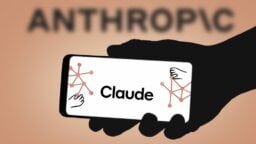Beatdapp, a music streaming fraud detection company, has announced a fresh USD $17 million funding round and a strategic partnership with Universal Music Group.
This comes alongside new collaborations with SoundExchange and Napster, marking a significant step forward in its mission to combat the growing problem of streaming fraud.
Beatdapp says its technology analyzes massive datasets to sniff out fraudulent streams, ensuring rightful payouts for artists and rights holders. The company says it analyzed more than 2 trillion streams and 20 trillion data points in 2023, while onboarding key clients.
Its five core types customers are DSPs (digital service providers), music labels, collection societies, creator tool services, and music distributors. The company claims to have a false positive rate of below 0.001%, which it says ensures fraud is eliminated while legitimate artists are protected.
Beatdapp plans to use the latest funding to recruit senior leaders, expand its data science and technical teams, and venture into new markets such as Asia, India, and Europe.
Beatdapp Co-CEOs Andrew Batey and Morgan Hayduk said, “Our mission at Beatdapp is to protect the economic wellbeing of the global music streaming industry and put an end to streaming fraud. As a neutral third party, Beatdapp is the impartial provider of objective analysis that our growing roster of clients can count on to get fraud detection.
“This new funding allows us to deploy the most sophisticated fraud detection models, built on an industry leading data set, and further enhances our reach to meet growing market demand for our capabilities across all corners of the globe.”
Andrew Batey and Morgan Hayduk, Beatdapp
“This new funding allows us to deploy the most sophisticated fraud detection models, built on an industry leading data set, and further enhances our reach to meet growing market demand for our capabilities across all corners of the globe.”
Universal Music Group, recognizing the detrimental impact of streaming fraud, joined forces with Beatdapp to combat the issue. Michael Nash, Chief Digital Officer & Executive Vice President of UMG, said, “As the world leader in music-based entertainment, UMG is pleased to support the dynamic team at Beatdapp, as we work to maximize compensation for artists and songwriters and the music that fans value the most.
“We must ensure we are supporting legitimate artistry, and deterring those who seek to abuse the open, global music industry.”
Michael Nash, Universal Music Group
“While streaming has been the most significant technology advancement in music in many years, fraud fueled by a flood of uploads with no meaningful engagement, including non-artist noise content, has necessitated a more sophisticated, coordinated, proactive approach to mitigating streaming fraud, to foster a thriving music ecosystem. We must ensure we are supporting legitimate artistry, and deterring those who seek to abuse the open, global music industry.”
Last year, UMG Chairman and CEO Sir Lucian Grainge denounced “bad actors” who exploit unauthorized means to drain royalty earnings from artists and rightsholders. Grainge contended that there is a need for a shift in the dominant ‘pro rata’ payout model used by these platforms.
Beatdapp says it works with partners to promote a healthier music ecosystem where rightsholders and creators are compensated fairly.
“Napster believes that streaming fraud is an industry-wide problem that requires an industry-wide solution to ensure that the correct royalties are reported and paid to the legitimate artists and songwriters who bring us the music we love.”
Matt Eccles, Napster
Matt Eccles, SVP and General Counsel, Napster, said, “Napster believes that streaming fraud is an industry-wide problem that requires an industry-wide solution to ensure that the correct royalties are reported and paid to the legitimate artists and songwriters who bring us the music we love. Napster’s view is that there should be consistency across the industry in respect of whether certain activity does or does not constitute streaming fraud.
“As such, rather than continuing to address the scourge of streaming fraud using its own internal resources, Napster wanted a partner who was well respected by music rights-holders who would deliver robust and impartial results and who would act as a deterrent to those committing streaming fraud. Beatdapp was the obvious choice. Napster has been thrilled to work with the Beatdapp team for over a year and could not be happier with the Beatdapp team’s collaborative approach and the consistent, timely and supportable results.”
In addition to these partnerships, Beatdapp in October partnered with California-based generative AI music startup Boomy to conduct an analysis of the latter’s entire distributed catalog. The partnership came less than a year after Spotify reportedly pulled down numerous tracks from its platform that had been distributed via Boomy over concerns that the tracks were being used by scammers to manipulate Spotify’s payout model.
Beatdapp’s advisory board consists of music industry veterans including former Warner Music SVP and Chief Strategic Technologist Howie Singer and Adam Parness, the former Global Head of Music Publishing at Spotify. In 2020, Bryan Turner, founder of Priority Records, joined Beatdapp’s advisory board.
Beatdapp’s fundraising round comes at a time when there is heightened concern among DSPs and major rightsholders about music streaming fraud.
Back in October, Spotify introduced changes to its payment model in a bid to clamp down on streaming fraud, including penalizing music distributors and labels when fraudulent activity is detected on tracks that they have uploaded to Spotify.
Sony Music Group Chairman Rob Stringer, speaking during Sony Group Corporation’s annual investor presentation in May last year, emphasized the need for aggressive enforcement by DSPs and distributors or a change in payment methods to mitigate the incentive for fraud.
Last year, MBW highlighted a French study revealing that up to 3% of music streams on platforms like Spotify are known to be fraudulent. The study estimated that, if these numbers are consistent globally, artificial streaming amounts to theft ranging between $175 million and $525 million annually, based on the IFPI’s report that streaming generated $17.5 billion in wholesale industry revenues worldwide in 2022.
Music Business Worldwide





